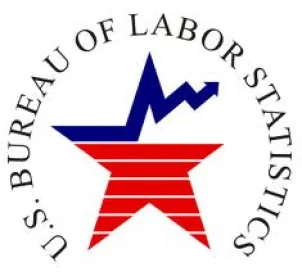Nuclear Fallout. U.S. Senate Majority Leader Chuck Schumer deployed the so-called “nuclear option” this week by seeking to eliminate the legislative filibuster as applied to election reform legislation. (This procedure is sometimes called the “nuclear option” because it effectively changes the U.S. Senate’s operating rules via a majority vote, rather than the two-thirds vote that would ordinarily be required to change the Senate’s official rules.) However, Democratic senators Joe Manchin (WV) and Kyrsten Sinema (AZ) joined all fifty Republicans in voting against Senator Schumer’s effort. For more than a year, Senator Manchin and Senator Sinema have reiterated their position on the legislative filibuster, but this week’s vote is the clearest indication yet of where they stand. It is also the clearest indication that the Senate’s legislative filibuster is likely to remain in place for the foreseeable future. This means that bills such as the Protecting the Right to Organize (PRO) Act and the Equality Act are likely to remain stalled in the Senate.
Bureau of Labor Statistics: 2021 Union Membership Rate Returned to 2019 Level. On January 20, 2022, the U.S. Department of Labor’s Bureau of Labor Statistics (BLS) released its annual data on union membership. In 2021, the percentage of U.S. workers who were members of unions—the union membership rate—was 10.3 percent (6.1 percent for private-sector workers). The 2021 rate declined 0.5 percent (0.2 percent for private-sector unionization) from the previous year, falling to where it was in 2019. The membership rate had ticked up to 10.8 percent in 2020, when the COVID-19 pandemic caused a disproportionate number of nonunion workers to lose their jobs. Going forward, these declining numbers will likely be cited by union lobbyists and other worker advocates as a reason for changing—legislatively or administratively—federal labor policy to ease union organizing.
NLRB Questions Lawfulness of Workplace Arbitration Agreements. It seems like every week the Buzz reports on a new policy pivot from the National Labor Relations Board (NLRB), and this week is no exception. This time around, the Board is focusing on common provisions of arbitration agreements that (1) require disputes to be arbitrated but expressly allow employees to file unfair labor practice charges with the Board, and (2) provide for the confidentiality of arbitration proceedings. A majority of the Board questions whether provisions such as these violate employees’ statutory rights to engage in protected concerted activity. The two Republican dissenters argue that the issue is a settled one because the Supreme Court of the United States has ruled that arbitration agreements must be “rigorously enforce[d]” according to their terms except in rare circumstances. Stakeholder briefs are due on or before March 21, 2022.
OFCCP Investigation Rule on the Way. On January 18, 2022, the Office of Federal Contract Compliance Programs (OFCCP) sent its regulatory proposal, “Modification of Procedures to Resolve Potential Employment Discrimination,” to the Office of Information and Regulatory Affairs (OIRA) for review. The proposal will purportedly make changes to the OFCCP’s Trump-era regulation that set guidelines for issuing a predetermination notice or a notice of violation, and it will also “make other related changes to the pre-enforcement notice and conciliation process.” Assuming a relatively quick rulemaking process by OFCCP, a final rule could result by the end of the year.
PBGC Implements ARPA Pension Fix. This week, the Pension Benefit Guaranty Corporation (PBGC) announced that it had made a $112.6 million special financial assistance payment to a financially troubled multiemployer pension plan based in New York. The payment was the first made pursuant to the Special Financial Assistance (SFA) Program established by the American Rescue Plan Act (ARPA).
D.C. Council Poised to Enter 21st Century? The Buzz has previously discussed the push to make the District of Columbia the 51st state. Recently, Congresswoman Eleanor Holmes Norton (D-DC) introduced a bill in Congress that aims a bit lower by simply making it logistically easier for the Council of the District of Columbia—better known as the D.C. Council—to make law. Under the District of Columbia Home Rule Act, enacted in 1973, legislation passed by the D.C. Council must be transmitted to Congress for a review period before it can become law. Although not specified in the Home Rule Act, congressional precedent requires the D.C. Council to transmit any such legislation in hard copy. Congresswoman Norton details the rigamarole that the D.C. Council must go through in order to satisfy this requirement:
-
Step 1: Write individualized cover letters.
-
Step 2: The Chairman physically signs the cover letters.
-
Step 3: Arrange a pick-up time of the legislation and cover letters from the Chairman.
-
Step 4: Print two copies of the bill and two copies of the committee report to deliver to the Speaker and to the President of the Senate.
-
Step 5: Arrange a time for delivery to the Speaker’s office.
-
Step 6: Arrange a time for delivery to the President of the Senate’s office.
-
Step 7: Arrange for two D.C. employees to drive to the Capitol. (Two staffers are required because parking restrictions require a driver and a delivery person.)
-
Step 8: Drive to the Capitol.
-
Step 9: Deliver the legislation to the Speaker’s office and get a signed receipt.
-
Step 10: Deliver the legislation to the President of the Senate’s office and get a signed receipt.
-
Step 11: Assign the congressional review period based on the receipts.
-
Step 12: File the signed receipts.
Congresswoman Norton’s bill would allow the D.C. Council to submit legislation to Congress electronically. Makes sense to the Buzz.




 />i
/>i
